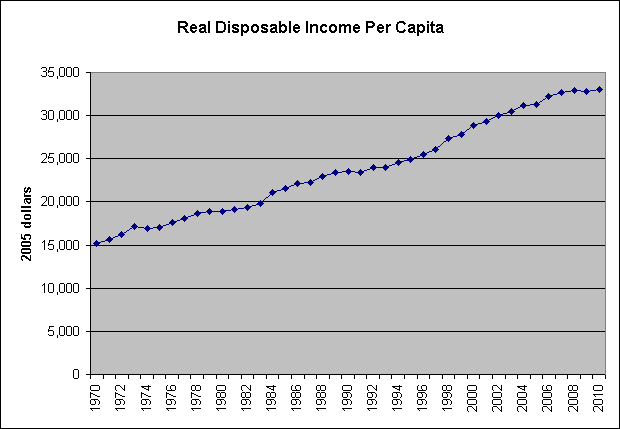
Article Artículo
The Gap Between New and Existing Home Sales: Adjusting to the BubbleDean Baker / March 24, 2011
Article Artículo
Robert Pozen's Liberal Plan for Social Security and Dean Baker's Conservative Plan for Tax ReformDean Baker / March 24, 2011
report informe
The Wisconsin Retirement System is One of the Healthiest in the CountryDean Baker / March 23, 2011
Article Artículo
Failure to Provide Basic Services Behind Decrease in IDP PopulationCEPR / March 23, 2011
Article Artículo
The Imaginary World in Which Washington LivesDean Baker
Truthout, March 23, 2011
Dean Baker / March 23, 2011
Article Artículo
Structural Unemployment, Housing Lock, and Inter-state MigrationJohn Schmitt and / March 22, 2011
Article Artículo
Japan’s Earthquake May Shake World EconomyDean Baker
The Guardian Unlimited, March 22, 2011
Dean Baker / March 22, 2011
report informe
The Wage and Employment Impact of Minimum-Wage Laws in Three CitiesJohn Schmitt and David Rosnick / March 22, 2011
Article Artículo
The Wall Street Journal Calls the Congressional Budget Office and the Social Security Trustees "Defenders" of Social SecurityDean Baker / March 21, 2011
Article Artículo
The CEPR Fix for Generational InequityThe NYT treated us to this column from a recent college grad complaining about the prospect that he will be faced with higher taxes to pay for his parents' and grandparents' Social Security and Medicare. The idea that our children and grandchildren are going to be poorer on average than we are is a regular theme of much of the budget reporting and advocacy work (think Peter Peterson funded enterprises) that we see regularly.
It is of course absurd on its face, as all economists and budget analysts know. Real per capita disposable income has risen at average rate of just under 2.0 percent year as shown in the chart below.

Source: Bureau of Economic Analysis.
All projections show that real per capita disposable income will continue to rise, meaning that future generations will on average be richer than we are today and much richer than our parents and grandparents' generations. Of course there is an issue of inequality, if most of the gains from growth go to the Goldman Sachs-Mark Zuckerberg types, then most today's children may not be much better off than their parents and grandparents, but that is an issue of inequality within generations, not between generations.
CEPR / March 21, 2011
Article Artículo
Calls of Fraud, Even Before Election DayCEPR / March 20, 2011
Article Artículo
Firing Government Workers to Create JobsThe Republican proposals to slash the budget seem to work from the premise that if we fire government employees that we will induce private employers to hire more workers. This runs directly opposite to the idea behind the stimulus, that if the government stimulated demand by spending money and/or cutting taxes it would create more jobs. Interestingly, there is new research that indicates that the stimulus did raise employment. In fact, it seems that its effect was even larger than the Obama administration had predicted.
But the Republicans seem uninterested in these research findings. They instead claim that the best way to create private sector jobs is by having the government fire workers and spend less.
It is difficult to follow the logic of this view. If we think of a cross section of employers – hospitals, construction companies, car factories, retail stores and restaurants – which ones on this list do we think will hire more workers after a big round of federal budget cuts and layoffs?
Do we think that hospitals will suddenly rush out and hire more nurses and doctors because because of the National Institutes of Health is cutting funding for cancer research? Will Wal-Mart expand its sales staff because the government is laying off people from Head Start? These stories don’t seem very plausible.
Undoubtedly some of the government employees losing their jobs will be experienced and highly educated workers who private employers will be anxious to hire, but this will generally be for positions that would have existed in any case. These former government employees will simply be displacing other workers who would have held these jobs; there will not be new jobs in the private sector created for them.
Dean Baker and / March 20, 2011